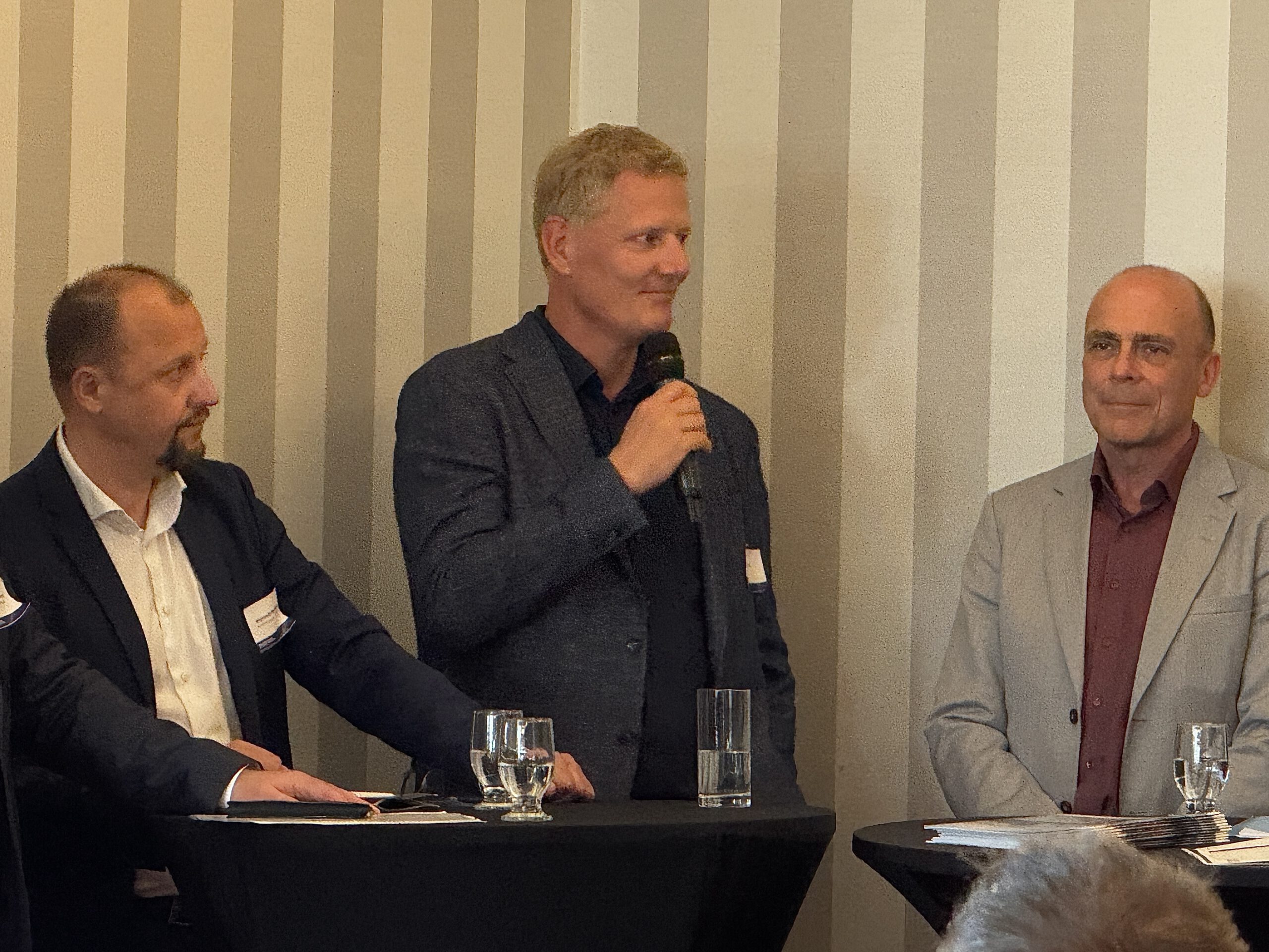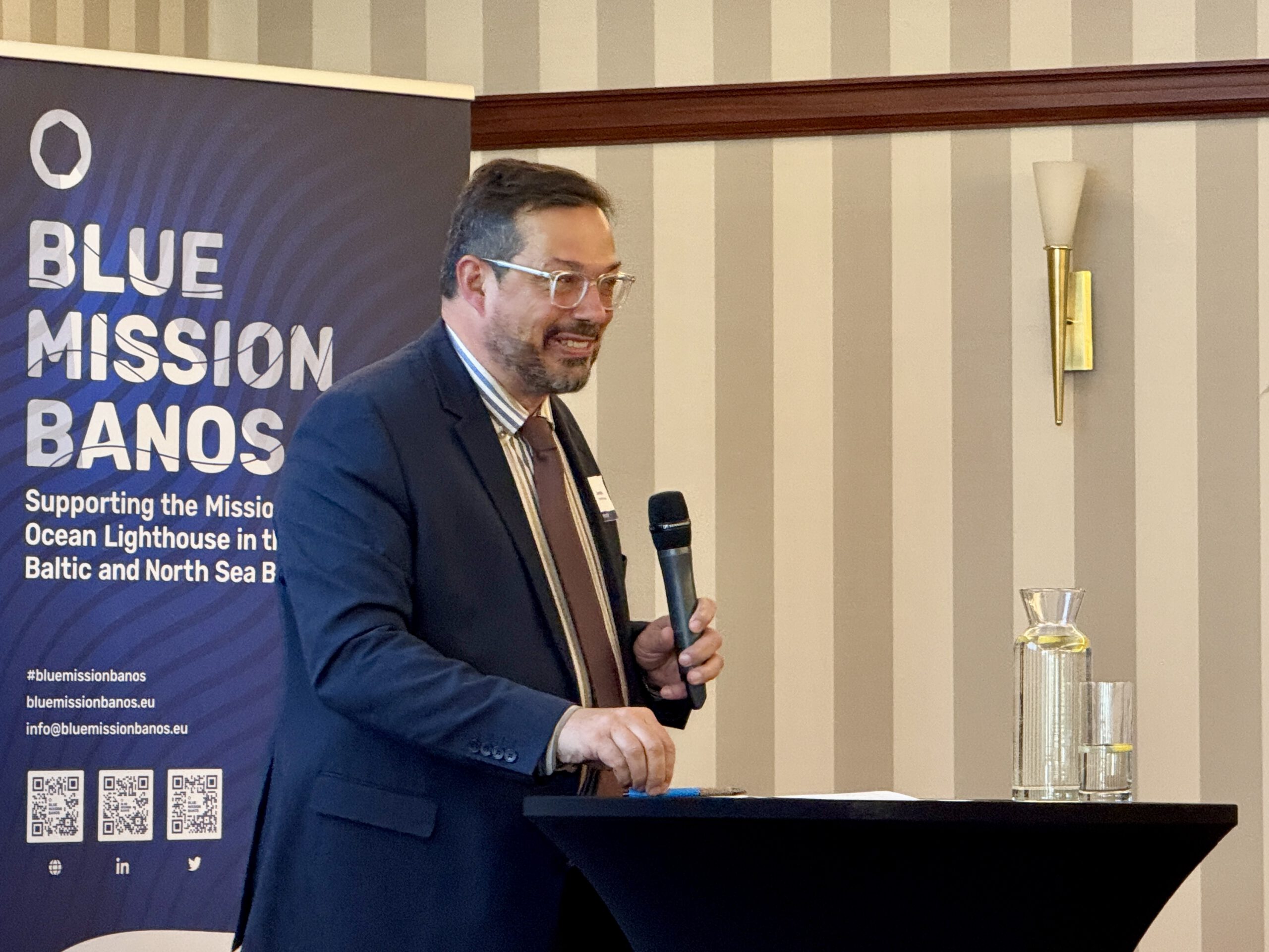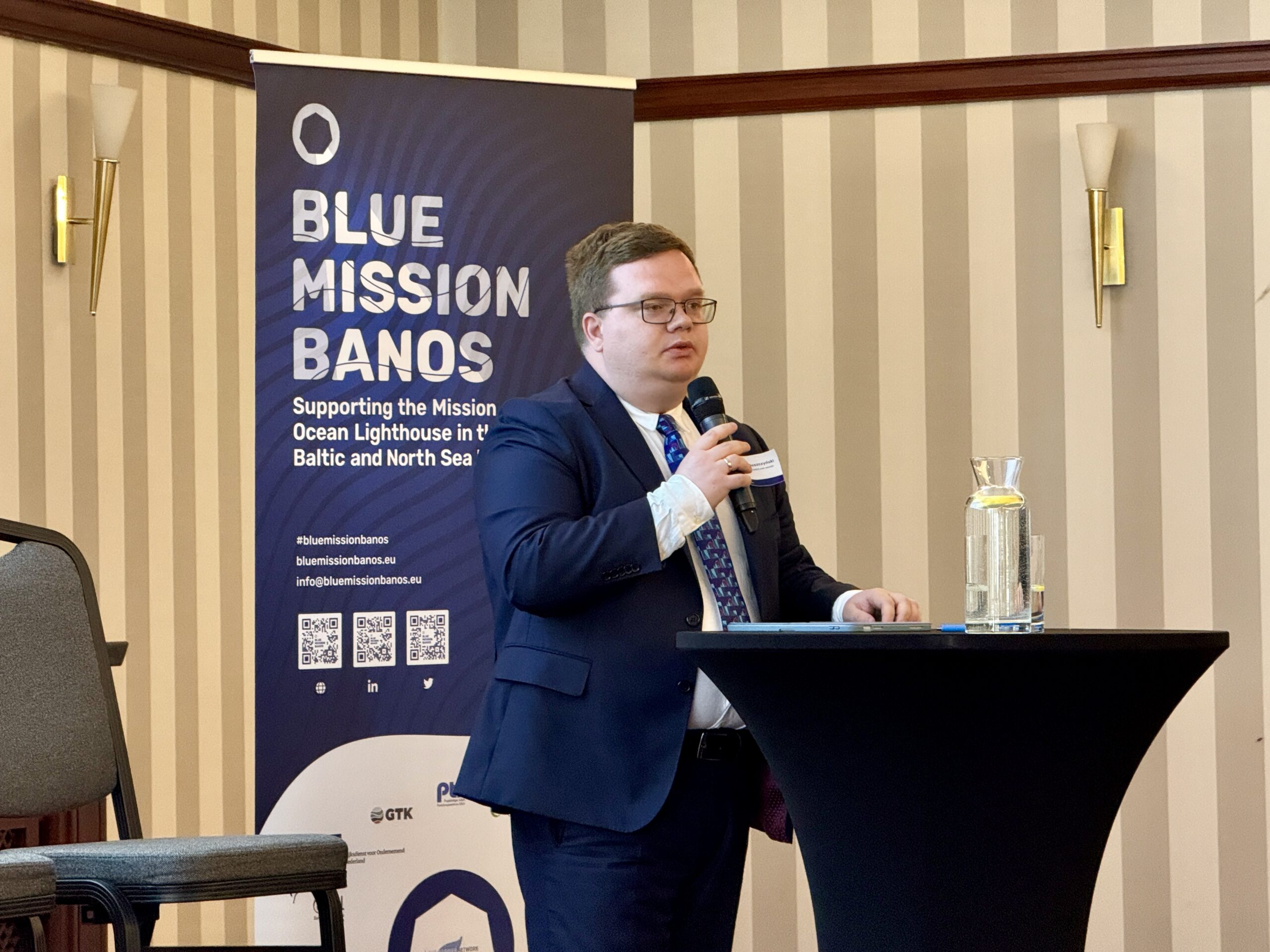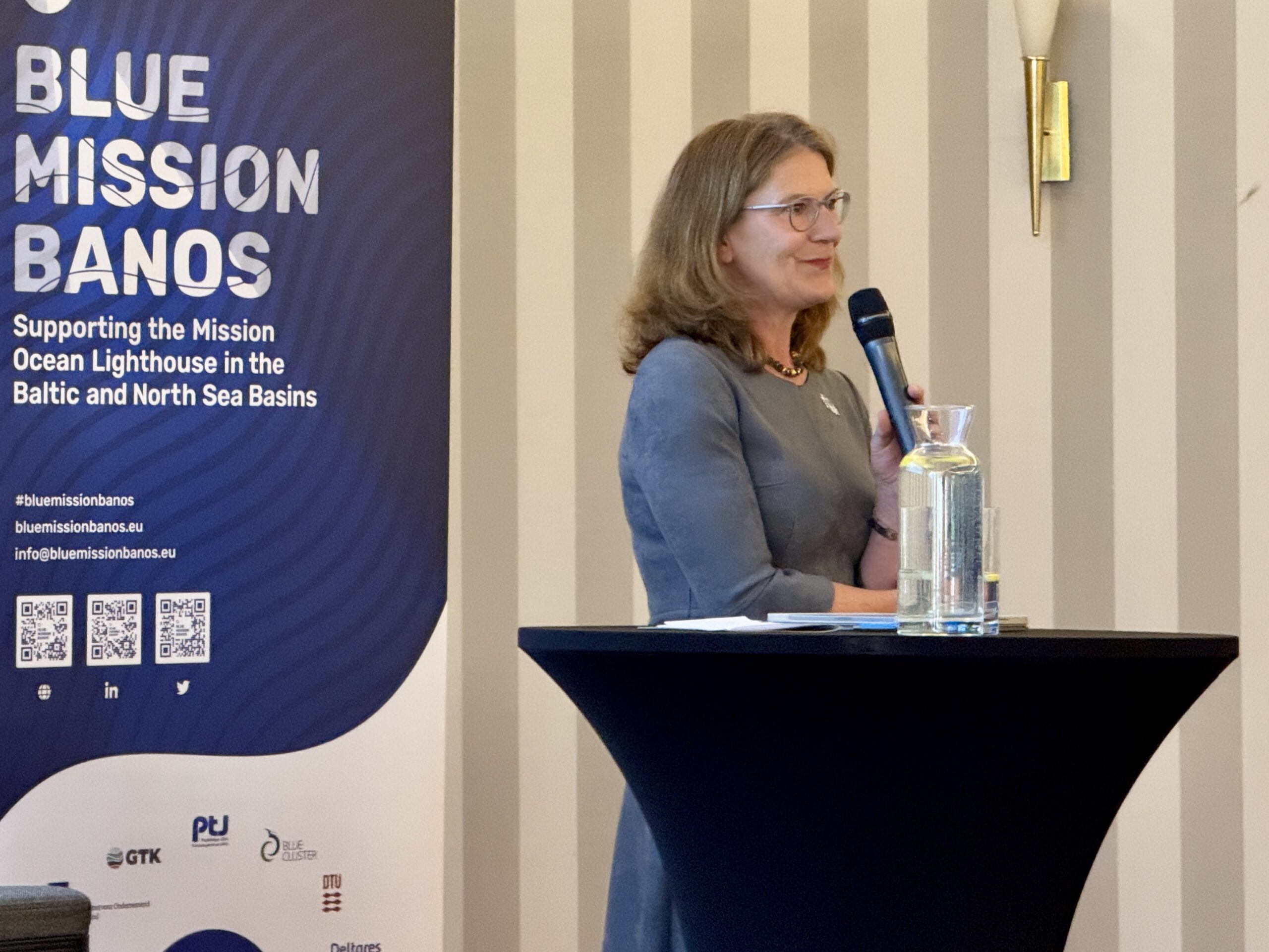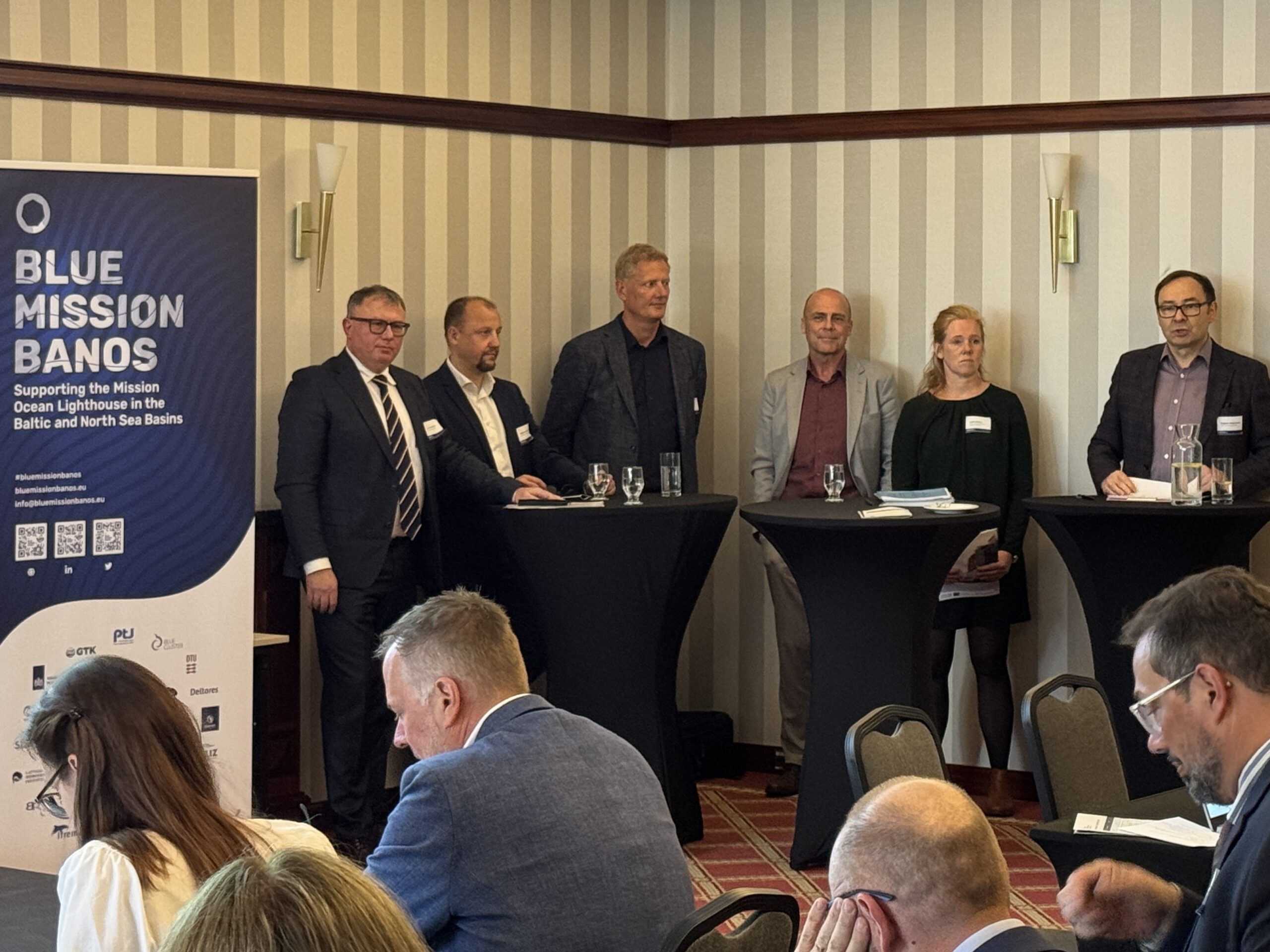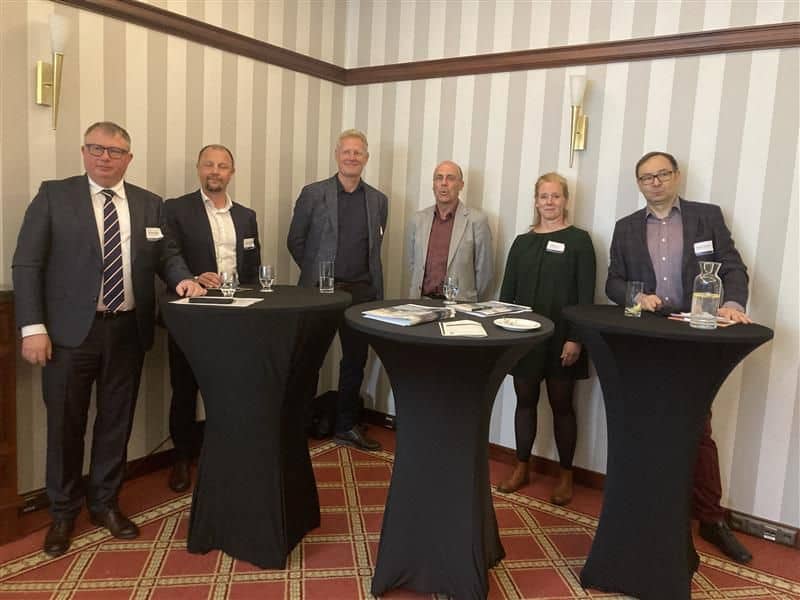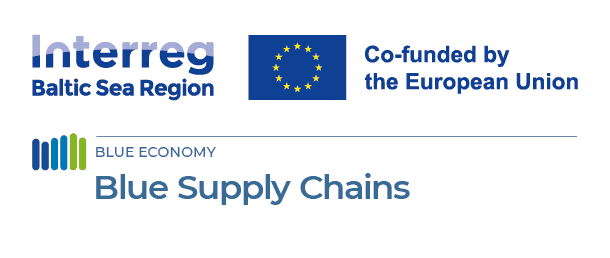
Blue Supply Chains at the 4th Mission Arena BANOS
30 April 2025
The overall goal of the initiative is to support EU’s mission to restore the oceans and waters, with Blue Mission BANOS in particular supporting stakeholders across the Baltic and North Sea in reaching a carbon-neutral and circular blue economy.
A new, complex stage for ports to act on
During the event, the Blue Supply Chains Project partners, jointly with the H2Derivatives@BalticSeaPorts Project and the REDII Ports Project, organised the session: “Ports – Sustainable & Secure Energy Hubs in an Evolving Transport Landscape.”
In a nutshell, ports today are:
- sustainable energy hubs (enabling the energy transition in port cities and beyond)
- in the transition towards zero emission (implementing electrification of port handling equipment- and On-Shore Power Supply solutions)
- still acting as traditional freight hubs (enabling international trade, resilient transport systems and welfare)
The opening discussion panel, moderated by Bogdan Ołdakowski (Baltic Ports Organization), touched upon a number of important issues, including current challenges and opportunities faced by ports, key fuel options and decarbonization efforts, including the port operators’ PO, stakeholder cooperation and financial challenges, the balance between trandition roles and sustainibility-related efforts, as well as various regulatory issues.
Invited panelists incldued Linda Styhre (IVL – Swedish Environmental Institute), Manfred Lebmeier (Hamburg Port Authority), Jan Jarmakowski (Gdynica Container Terminal), Henning Dierks (Mabanaft) and Wojciech Muchlado (P&O Ferrymasters).
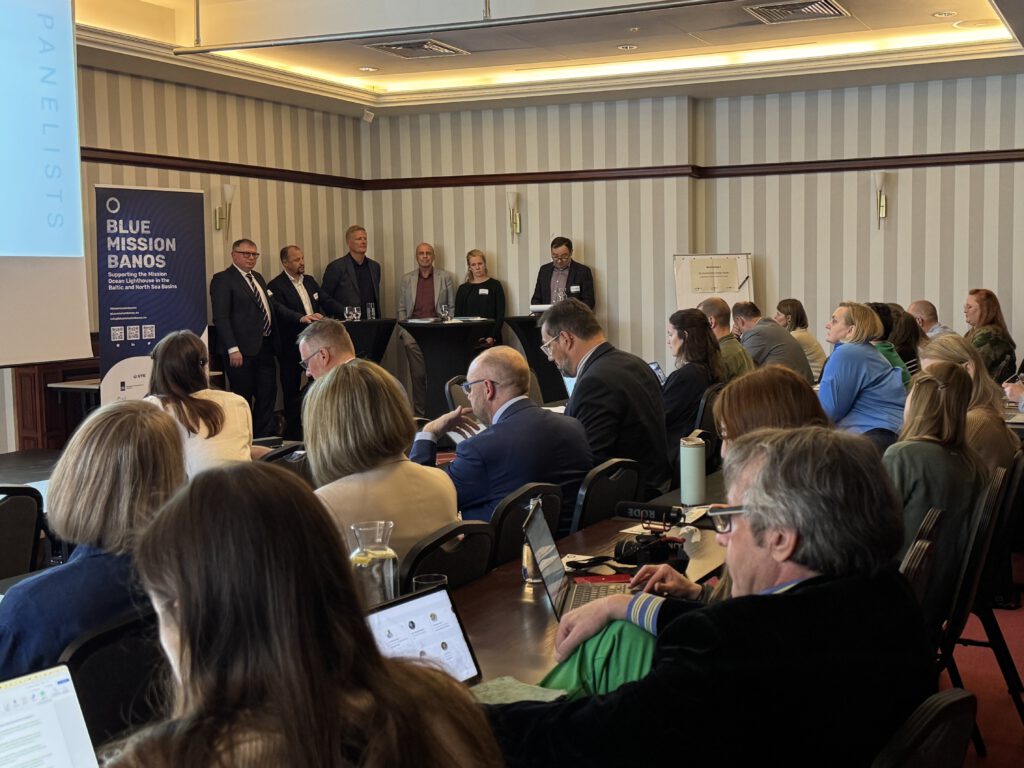
© Blue Supply Chains
Challenges and opportunities faced by ports
The discussion opened by acknowledging the challenging landscape faced by ports, driven by both business and geopolitical factors. Ports are at the centre of the decarbonisation efforts, with the pressure to evolve their operations to include renewable energy sources and adapt to regulatory frameworks. While these efforts bring opportunities, such as the potential for green hydrogen and other alternative fuels, significant barriers exist, particularly related to infrastructure development, regulatory support, and financing.
Key Fuel Options and Decarbonization Efforts
Linda emphasised that ports are exploring multiple fuel options, including biofuels (biogas, electro fuels like hydrogen), and highlighted the need for better safety measures around technologies like Armonia. She pointed out the significant cost gap between fossil fuels and biofuels, noting the lack of urgency in addressing the transition to sustainable fuels.
Meanwhile, Manfred highlighted the need for electric power in ports, focusing on local production and storage. However, he noted challenges with transporting hydrogen and CO2, underscoring the need for further regulation and clarity around who is responsible for these logistics.
Decarbonisation from a port operator’s POV
Jan provided a port operator’s viewpoint, stressing that decarbonisation measures would ultimately affect end consumers in terms of cost allocation. He highlighted the importance of cooperation between port authorities, energy grid operators, and port operators to support the transition. Jan pointed out that the increase in energy consumption, alongside regulatory hurdles, requires a concerted effort to ensure energy efficiency and support for carbon-free operations.
Similarly, Henning shared optimism about projects underway in Germany, including hydrogen production and the conversion of diesel infrastructure to support methanol.
Stakeholder cooperation and financial challenges
Wojciech discussed the critical need for stakeholder collaboration between port operators, customers, and energy providers. He underscored the urgency of securing funding and developing solutions that align with the decarbonisation goals. However, he also noted that only a small percentage (around 5%) of customers (leaders, not implementers) are willing to invest in sustainable solutions, which needs to change.
The discussion emphasised that sustainable investments are essential but require substantial financial commitments, with a need for clear stakeholders to take responsibility.
Balancing traditional roles with sustainability
The discussion also touched upon ports’ traditional role in handling goods and how that role might evolve with the increasing focus on sustainability. Linda underscored the importance of resilient transport systems and the balancing act between energy transition and maintaining the ports’ core functions.
Manfred added that while the push for sustainability is essential, ports are businesses that must remain financially viable.
Regulatory issues and the need for action
The session highlighted several regulatory issues, including the need for energy production to be as close as possible to the ports and for clearer regulations around emissions, fuel supply, and waste management. These regulatory barriers are often compounded by the need to align with local and global frameworks.
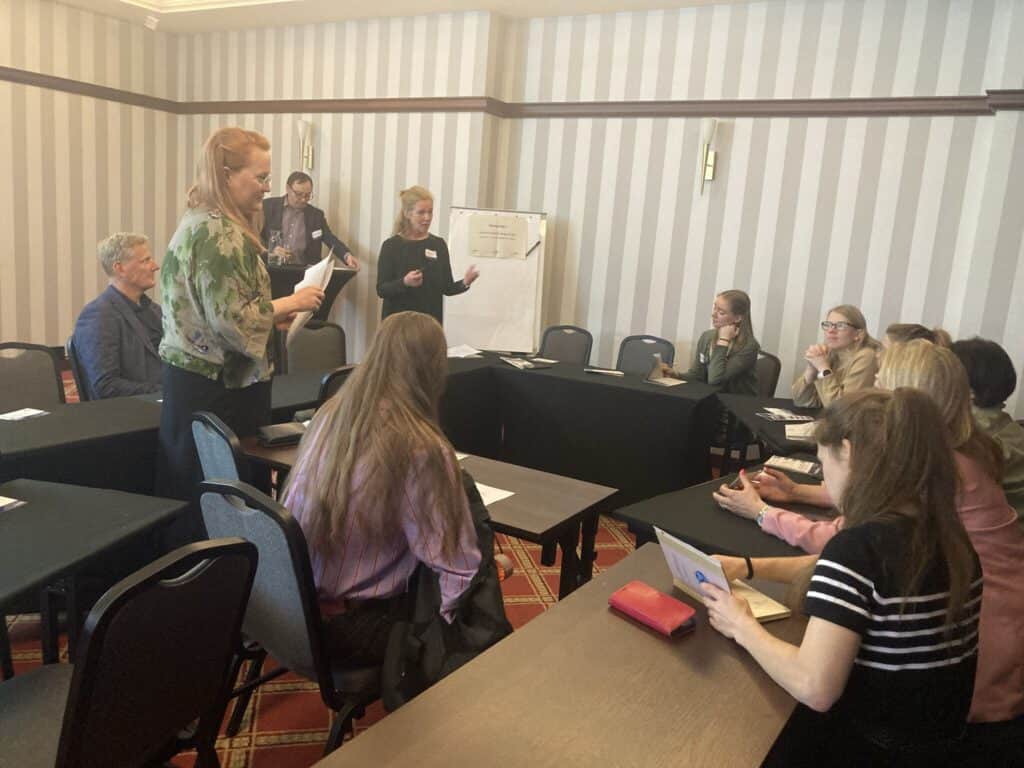
© Blue Supply Chains
Workshopping the issues
The viewpoints shared by the panelists served as appetizers for the three parallel round table workshops, which followed the discussion panel. The workshops were led by by Linda Styhre & Elin Malmgren (IVL – Swedish Environmental Institute), Gunnar Platz (PLANCO Consulting) and Maciej Brzozowski (Port of Hamburg Marketing).
In total 70 participants discussed ports actual and future role in the European transport system. One thing became clear: Complexity and ports’ range of tasks have grown significantly. Ports are strategic geopolitical asset for Europe, a crucial pillar of Europe’s supply chain sovereignty and enabler of the energy transition.
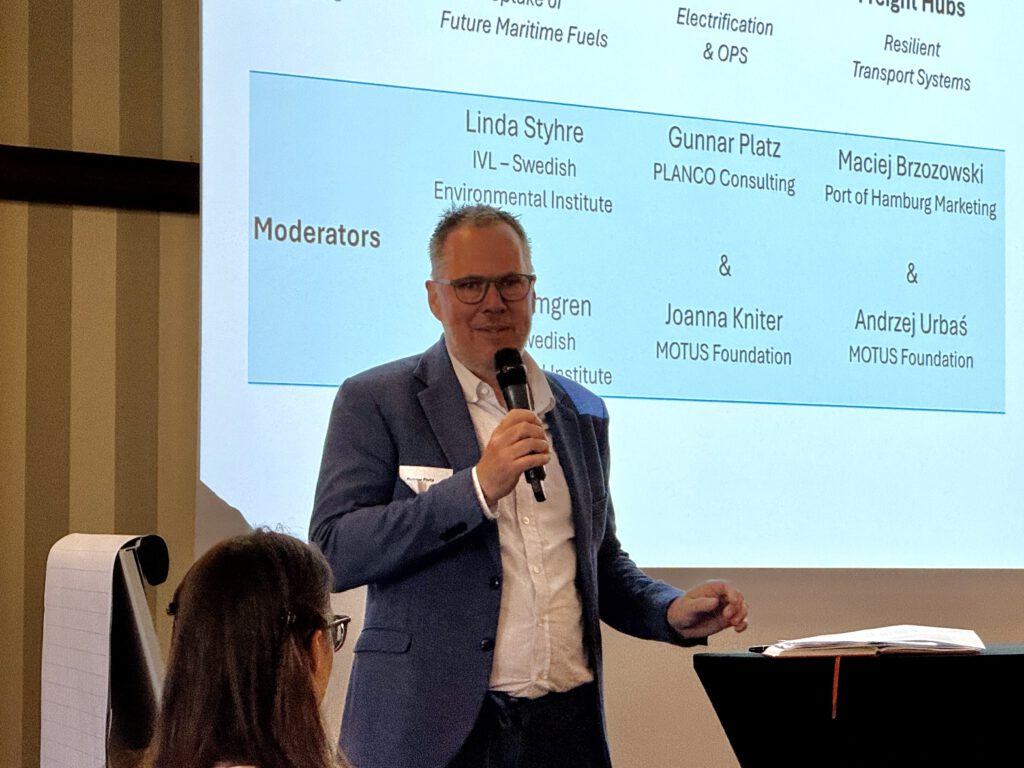
© Blue Supply Chains
At the same time efforts to keep (cyber) security and infrastructure at a sufficient level require even closer cooperation, massive investments and respective support on governmental level. Fundig schemes need to be updated and also consider the traditional role of ports to keep Europe independent and competitive, as the latter, viewed in international context, is crucial for the European economy.
The session concluded with clearly recognising the urgency required to move towards sustainable energy hubs in ports. Participants highlighted the importance of collaboration, adequate funding, and regulatory clarity in overcoming the challenges associated with the energy transition.
Ports must continue to evolve, ensuring that sustainability goals align with their business needs while maintaining resilience in their traditional roles. Overall, the session reinforced the view that while the challenges are significant, the opportunities for ports to become sustainable energy hubs are substantial, provided that stakeholders work together to address infrastructure, regulatory, and financial issues.
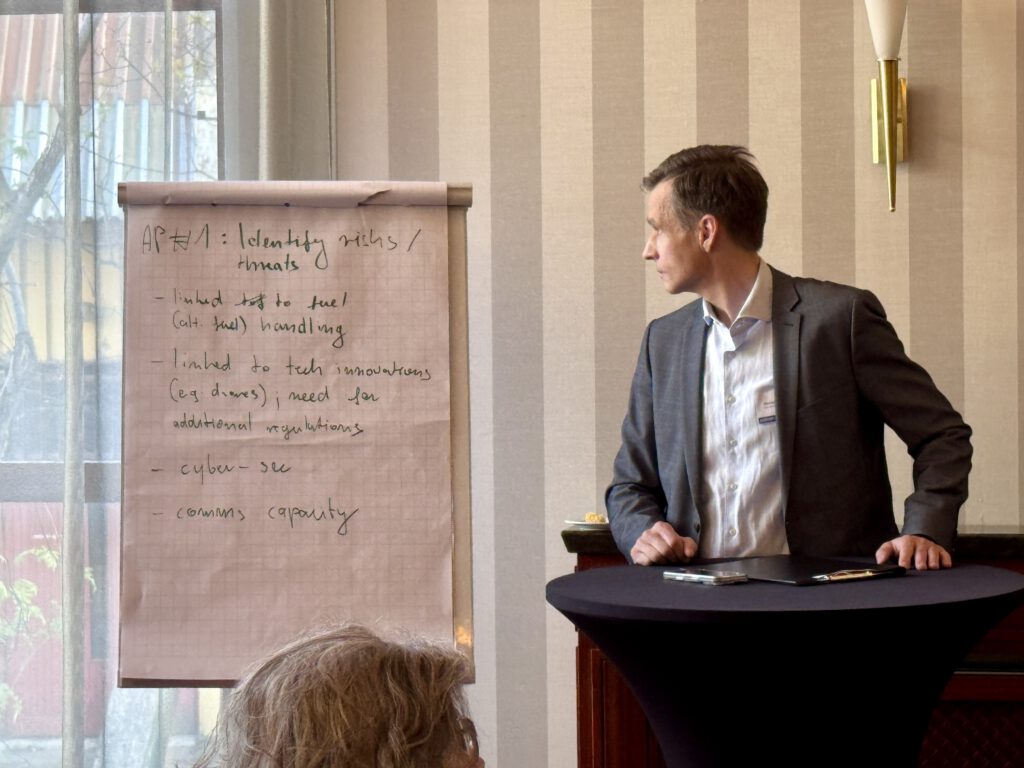
© Blue Supply Chains
The BANOS train kept rolling on
The second day of the event was even more packed and the Blue Supply Chains representatives present had a plethora of choices when it came to which workshops to dive into. In the end we decided to dip in and out of the various sessions to learn more about the BANOS initiative and other projects.
Second day’s workshops covered topics related to:
- Maritime spatial planning foresight
- Sustainable Blue Economy partnerships
- Education youth for innovation and sustainable Blue Economy
- Tools for multi-level governance
- … and many, many more!
Full event agenda can be viewed here.
The Blue Supply Chains project would like to thank the organizers for giving us the opportunity to contribute to the event and meet our counterparts from other EU initiatives. It has been an intense, yet very informative time and we were blown away by the level of enthusiasm and engagement everyone brought to the table.
As always, you can find more info, pictures and other news on the BSC LinkedIn profile.






